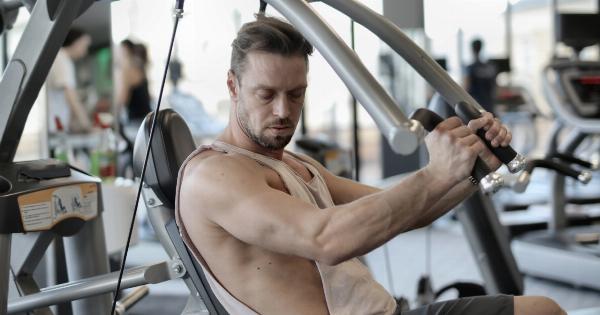Gymnastics is an amazing sport that requires strength, flexibility, and balance. Whether you are a beginner or a seasoned gymnast, your nutrition plays a vital role in your performance.
Proper nutrition not only energizes your body but also aids in muscle recovery and development. All gymnasts, regardless of their level, can benefit from following a nutrition plan tailored to their specific needs. In this article, we will explore the importance of proper nutrition in maximizing your gymnastics performance.
Macronutrients
The human body requires three macronutrients – carbohydrates, proteins, and fats – to function optimally.
All three macronutrients are crucial for energy production and muscular development, but the amount of each nutrient needed varies depending on the individual. As a gymnast, your diet should contain enough macronutrients to support your workouts, maintain or increase muscle mass, and keep your energy levels high.
Carbohydrates
Carbohydrates are the primary fuel source for our bodies. They provide energy for both high-intensity workouts and daily activities. As a gymnast, your body needs a considerable amount of carbs to fuel your training.
Complex carbohydrates like whole grains, fruits, and vegetables are excellent sources of energy. It’s best to avoid simple carbohydrates like candy, soda, and processed foods, as they provide little to no nutritional value and can lead to negative health effects like weight gain and energy crashes.
Protein
Protein is essential for muscle repair and growth. As a gymnast, your muscles undergo a lot of stress from workouts, and the right amount of protein can help with recovery and development.
Good protein sources include lean meats, dairy, eggs, and plant-based proteins like beans and nuts. It’s essential to consume protein after your workouts to aid in muscle repair.
Fats
Fats have been unfairly maligned in the past. Good fats like those found in nuts, avocados, and oily fish are crucial for our health and wellbeing. Fats play a vital role in energy production, hormone regulation, and brain function.
As a gymnast, you should consume enough healthy fats to keep your body functioning correctly.
Micronutrients
Micronutrients are essential vitamins and minerals that our bodies need in small amounts. They play a critical role in various functions like skin health, immune system function, and hormone regulation.
As a gymnast, consuming enough micronutrients is essential for optimal physical performance.
Vitamins
Vitamins are organic compounds that our bodies need in small amounts. They play a crucial role in various physiological processes. Athletes need an adequate supply of vitamins to help boost their immune systems and keep their bodies functioning optimally.
Good vitamin sources include fruits, vegetables, nuts, and lean meats.
Minerals
Minerals are inorganic compounds that are essential for various physiological processes, including muscle contractions and energy metabolism. Athletes require an adequate supply of minerals to maintain optimal health and physical performance.
Good mineral sources include dark leafy greens, legumes, and nuts.
Hydration
Staying hydrated is crucial, especially for athletes. Water is essential for maintaining optimal body temperature, lubricating joints, and transporting nutrients throughout the body.
As a gymnast, it’s essential to drink plenty of water before, during, and after workouts. You should aim to drink at least half your body weight in ounces per day to ensure that you are staying adequately hydrated.
Supplements
Supplements can be helpful for athletes who are not getting enough micronutrients from their diets. However, it’s essential to keep in mind that supplements should not be a replacement for a healthy diet.
It’s best to consume most of your nutrients from whole foods, and supplements should only be used to fill in any nutritional gaps where necessary.
Conclusion
Gymnastics requires a unique set of skills, strength, and endurance. As a gymnast, your nutrition plays a critical role in maximizing your performance.
A healthy and balanced diet with enough macronutrients and micronutrients, proper hydration, and essential supplements can help you achieve your gymnastics goals. Remember that good nutrition is a journey, and it’s essential to find a nutrition plan that works best for your body and training schedule.































